Abstract
An epidemic of acute haemorrhagic conjunctivitis (AHC) occurred in and around Chandigarh, north India, during June, July and August 1981. Considering the difficulty of virus isolation, the indirect immunofluorescence test was used for the demonstration of virus-specific antigen in the cytoplasm of exfoliated conjunctival cells, using reference antisera. The epidemic appeared to be primarily due to enterovirus type 70. The method was found suitable for the rapid diagnosis of AHC cases and for detecting subclinical infection among healthy subjects and convalescent carriers. During follow-up, it was observed that some of the AHC cases were shedding virus-infected conjunctival cells for a prolonged period, even after clinical recovery and during convalescence, before they became free from virus. In the absence of virus isolation, this method can be considered as suitable for the epidemiological monitoring of AHC.
Full text
PDF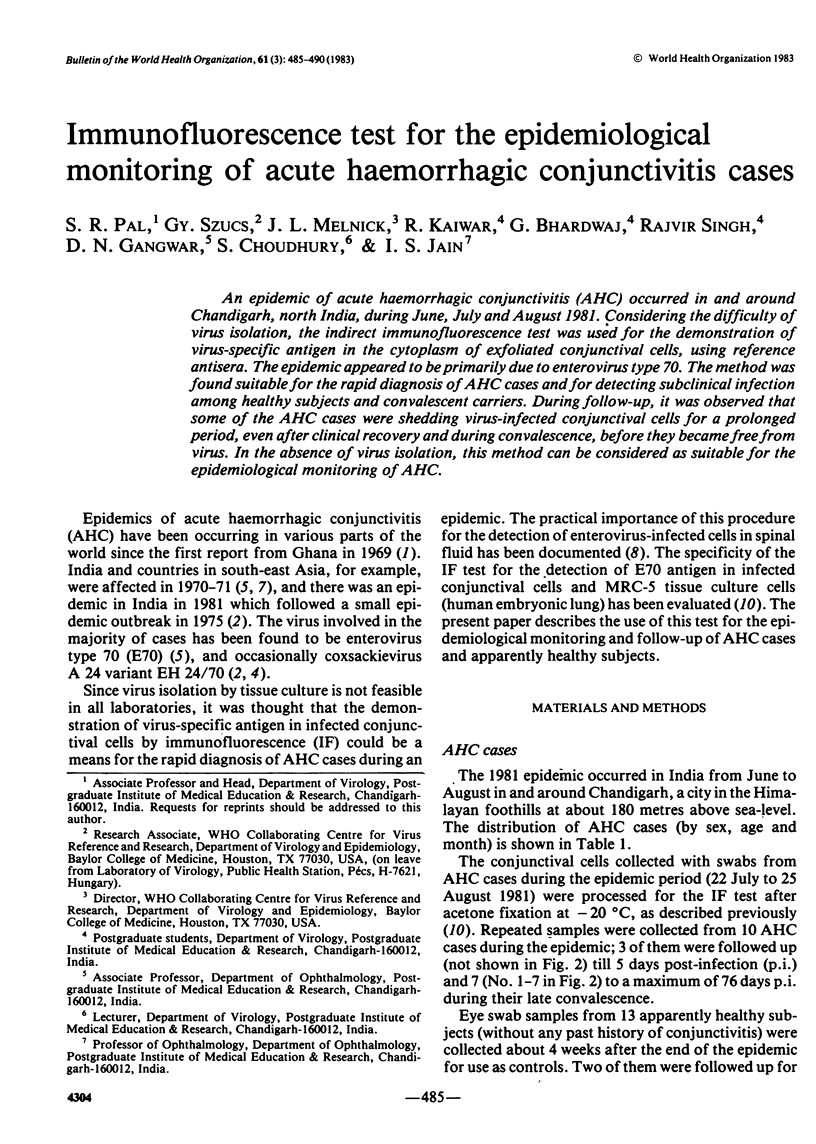
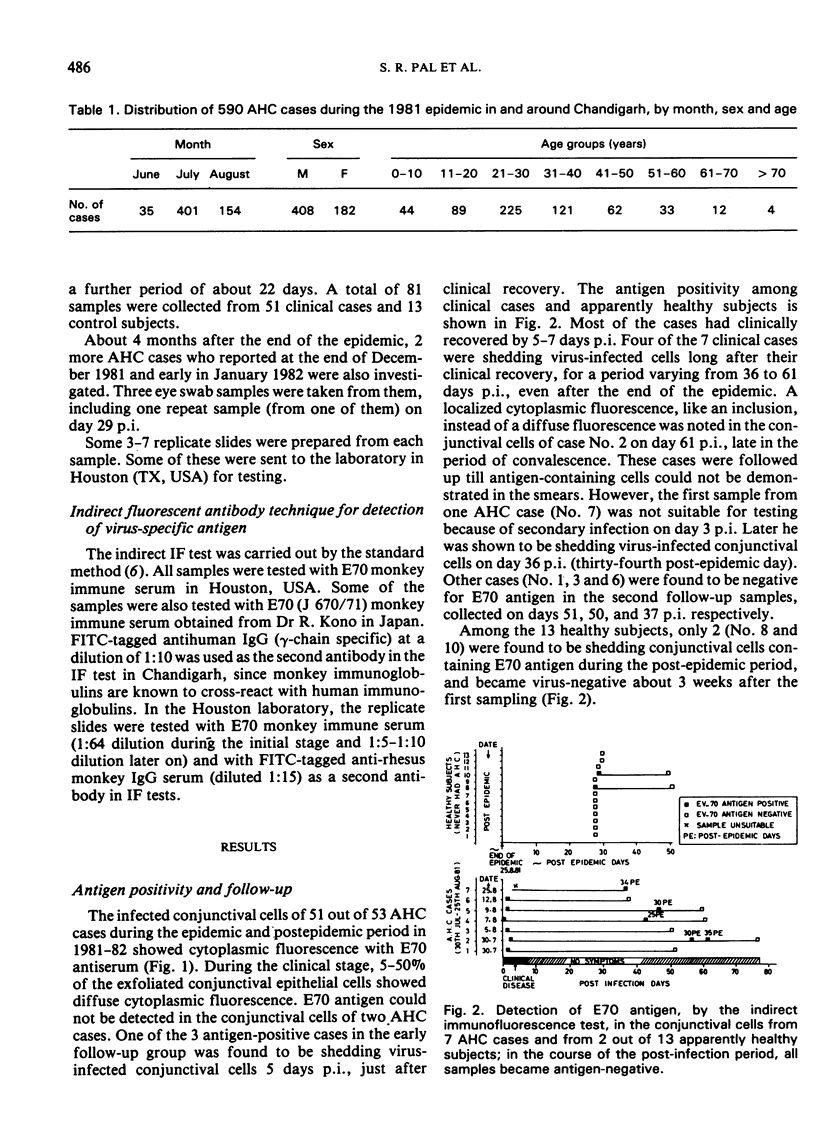
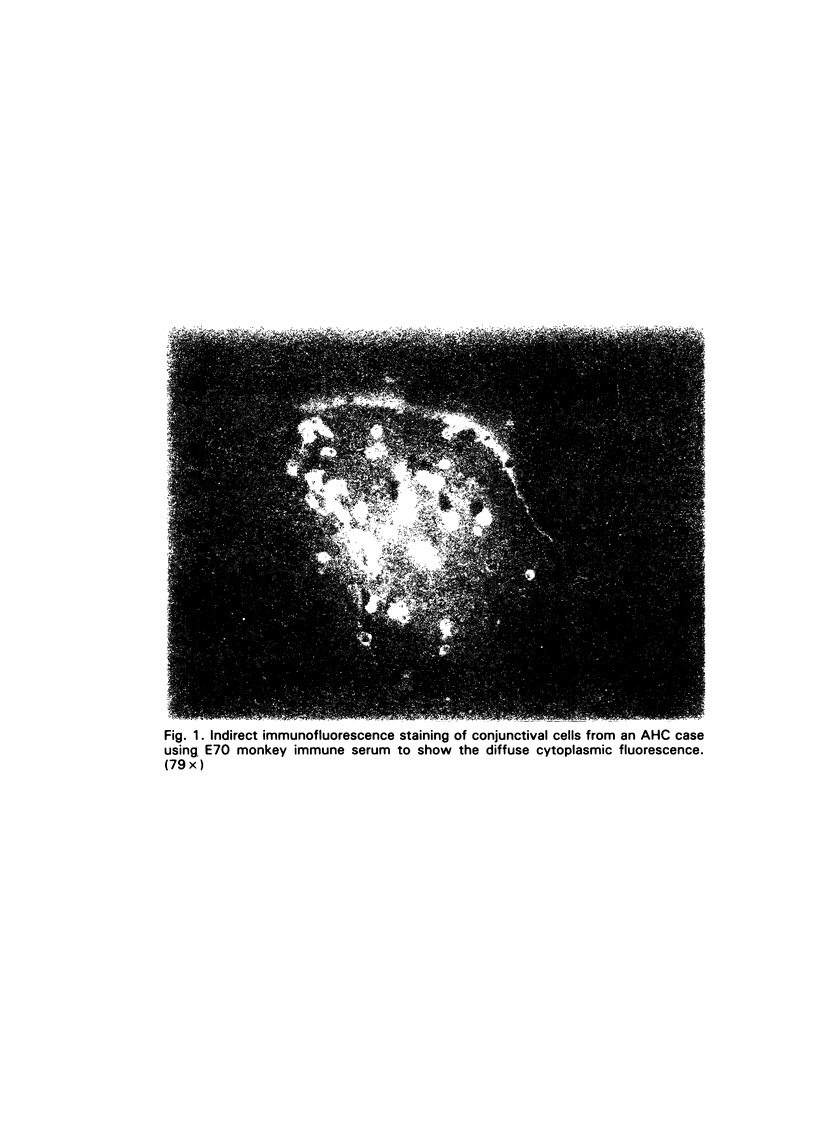
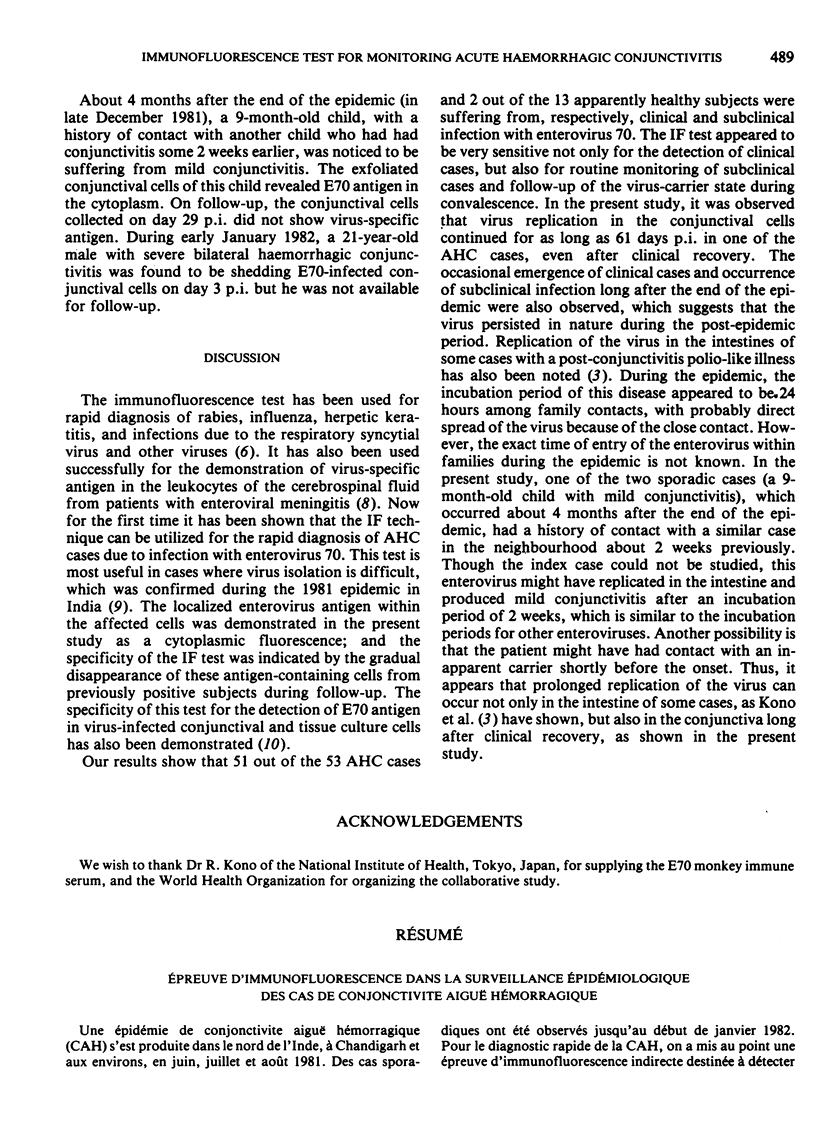
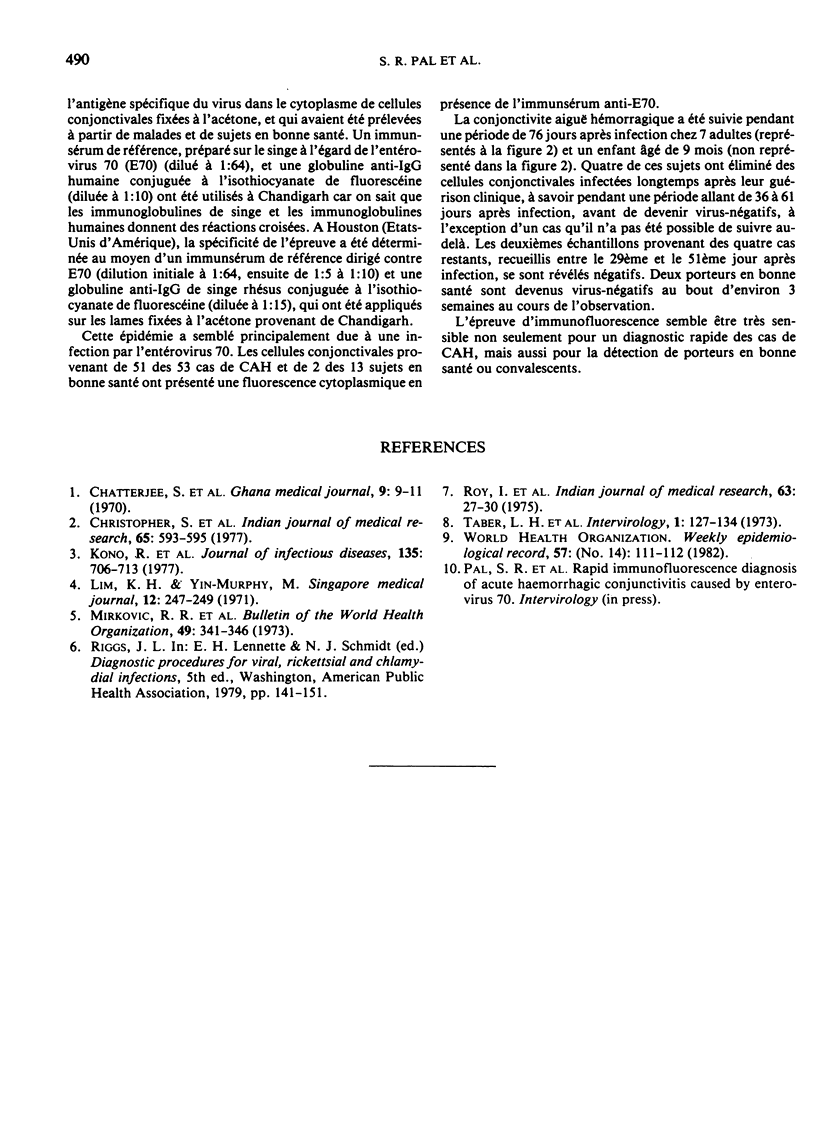
Images in this article
Selected References
These references are in PubMed. This may not be the complete list of references from this article.
- Christopher S., John T. J., Charles V., Ray S. Coxsackievirus A24 variant EH 24/70 and enterovirus type 70 in an epidemic of acute haemorrhagic conjunctivitis--a preliminary report. Indian J Med Res. 1977 May;65(5):593–595. [PubMed] [Google Scholar]
- Lim K. H., Yin-Murphy M. An epidemic of conjunctivitis in Singapore in 1970. Singapore Med J. 1971 Oct;12(5):247–249. [PubMed] [Google Scholar]
- Mirkovic R. R., Kono R., Yin-Murphy M., Sohier R., Schmidt N. J., Melnick J. L. Enterovirus type 70: the etiologic agent of pandemic acute haemorrhagic conjunctivitis. Bull World Health Organ. 1973;49(4):341–346. [PMC free article] [PubMed] [Google Scholar]
- Taber L. H., Mirkovic R. R., Adam V., Ellis S. S., Yow M. D., Melnick J. L. Rapid diagnosis of enterovirus meningitis by immunofluorescent staining of CSF leukocytes. Intervirology. 1973;1(2):127–134. doi: 10.1159/000148839. [DOI] [PubMed] [Google Scholar]



